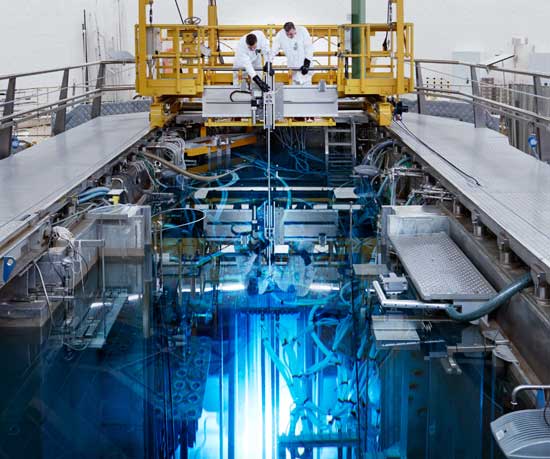
The Netherlands: A Small but Significant Nuclear Programme
The Netherlands is a country with a relatively small nuclear energy programme, but since two decades a considerable activity on development and production of medical isotopes has existed in the country. Nuclear research is conducted mostly at NRG, operator of the HFR, and at the Delft University of Technology.
.jpg)
Due to its large gas reserves, the number of nuclear power plants remained at only 2 – the permanently shut down 60-megawatt BWR at Dodewaard and the operational 482-megawatt PWR at Borssele. At the same time the enrichment industry has been developing successfully and the HFR is being operated, starting from purely nuclear energy and science applications to primarily medical production.
Public research funding was cut severely, forcing the Reactor Centre Netherlands to convert, now in the form of NRG, from a research-only oriented organization working on mostly nuclear technology applications related to energy conversion, towards a business-driven organization working on consultancy, commercial business and research/innovation in the areas of health, energy and rad-waste.
.jpg)
There were significant societal discussions on nuclear power in the 1980s, which later on lost the public’s interest. The smaller nuclear plant Dodewaard was closed in 1997 and put into safe shut down. The larger plant Borssele was almost shut down in 2004 but survived due to a legal challenge by the personnel, united in a foundation for maintaining the plant. Later on the plant’s operational period was extended to 2033, provided it will remain in the top 25% of best performing plants in the world.
The challenges faced in the past concerned mostly making ageing infrastructure compliant with up-to-date licensing requirements as well as the reduction of government funding for nuclear research of about 80-90% in the early 1990s, to 20-30% in 2010-2015.
A Look to the Future
Currently there are no plans for a second NPP in the Netherlands. However, the operation of the coal fired power stations in the Netherlands is under pressure because of the climate discussion, so there may be room for nuclear initiatives for replacement in a few years. Development of the electricity market is most important here, not so much public opinion.

The Netherlands has a nuclear research infrastructure for both experimental and computational work on isotope developments, fission/fusion applications and radwaste handling. The ageing HFR is foreseen to be replaced by the Pallas reactor in 2024, with the government funding the preparation phase and private investors funding the actual construction.
One of the biggest challenges for nuclear development is maintaining the capacity and competence-base. The role of nuclear in the energy mix is gradually reducing in Western Europe, and the growth of medical isotopes is stabilizing in Western countries. This requires a renewed target for nuclear development in a shrinking market. In that respect, the application of the principles of Full Cost Recovery and a harmonized European approach of funding nuclear development and (the reduction of) subsidizing nuclear business.
.jpg)
Although the Dutch nuclear energy programme may be small, responsibility is taken on all its aspects, including long term safe operation of nuclear plants and other facilities, and management of all nuclear waste on a national interim storage facility. New build driven by the need for medical isotope production is in active preparation, and the option for new nuclear power plants is open.
|

